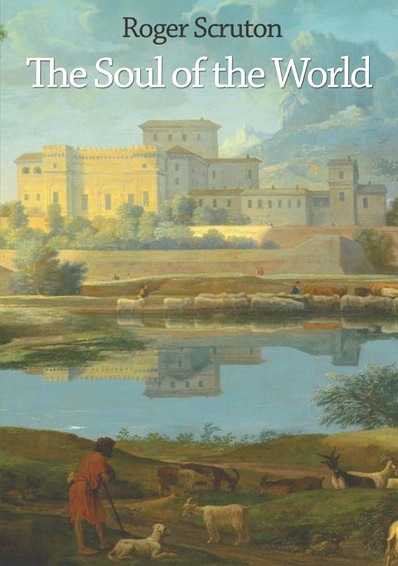In the words of Bob Dylan, “It may be the devil, or it may be the Lord, but you’re gonna have to serve somebody.” English philosopher Roger Scruton’s wise and beautifully written The Soul of the World makes the case that, despite the brashness of the New Atheists and the increase of “Nones” (those with no religious affiliation) there is a “fundamentally religious impulse” – what we call “the sacred” – that is irrepressible.
Scruton explains faith as an “attitude of openness to meanings” (experienced in love, art, nature and morality) that are expressed and captured best in spiritual language.
 Think of all the times we reflexively say “Oh God”: When we witness a magnificent sunset, make love, hold our newborn child or grandchild, receive a random kindness, narrowly escape danger, dance with abandon at a rock concert, hold our ill friend’s hand, comfort our grieving neighbor – not to mention when we risk our status, possessions, even our lives to fight for the right thing.
Think of all the times we reflexively say “Oh God”: When we witness a magnificent sunset, make love, hold our newborn child or grandchild, receive a random kindness, narrowly escape danger, dance with abandon at a rock concert, hold our ill friend’s hand, comfort our grieving neighbor – not to mention when we risk our status, possessions, even our lives to fight for the right thing.
The feelings of awe, wonder, connection, reverence, surrender, sacrifice, gratitude or compassion captured by our “Oh God” point to something beyond the perceptible here and now. It’s something that occurs in this life, but which we sense, in some way, also reaches beyond this life.
Philosophy teaches us that because reality is always mediated by our subjectivity, we cannot access some transcendental Reality. And, yes, we know that the data of nature is just as compatible with a random (even malevolent) view of the universe as with a trusting and good one. So okay, “God” may indeed be “dead” – but we who seek God aren’t looking for proof. We know that our emotional needs precede rational arguments. We also realize that our yearnings for transcendence often move us to surpass our less than noble needs and desires, taking us to a higher realm of ethics and a more intimate connection to one another, and to the universe.
Scruton shows that when religion is working, it provides the nurturing stories, images, symbols and practices that place our yearnings and emotions into a framework of redemption – a trajectory towards a better world. Yes, we gotta serve somebody, so let’s continue inventing our sacred games.

Rabbi Irwin Kula is a 7th generation rabbi and a disruptive spiritual innovator. A rogue thinker, author of the award-winning book, Yearnings: Embracing the Sacred Messiness of Life, and President-Emeritus of Clal – The National Jewish Center for Learning and Leadership, he works at the intersection of religion, innovation, and human flourishing. A popular commentator in both new and traditional media, he is co-founder with Craig Hatkoff and the late Professor Clay Christensen of The Disruptor Foundation whose mission is to advance disruptive innovation theory and its application in societal critical domains. He serves as a consultant to a wide range of foundations, organizations, think tanks, and businesses and is on the leadership team of Coburn Ventures, where he offers uncommon inputs on cultural and societal change to institutional investors across sectors and companies worldwide.

